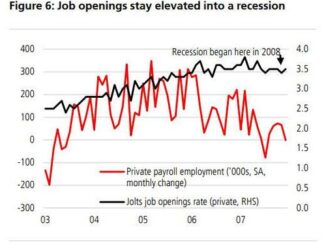
By Gregory Hershman, Head of US Policy

As US statehouses begin their 2023 sessions, we see a growing number of proposed bills that address ESG or responsible investment in some way. Most of these bills see considering and incorporating environmental, social and governance factors – as well as broader practices associated with responsible investment – as harmful or otherwise unwanted. These anti-ESG bills are based on misconceptions about responsible investment’s purpose, its value to investors and beneficiaries, and how it is done.
Many of the bills assume that considering ESG factors, or otherwise engaging in responsible investment, means that investment managers or fiduciaries are sacrificing financial returns to address non-financial issues. But responsible investment is about appropriately taking into account all value drivers, and understanding beneficiaries’ expectations in a changing world. It does not encourage investment managers to sacrifice returns, or seek lower target returns.
ESG bills and boycott bills
The vast majority of the bills we are seeing in US states can be simplified into two categories: ESG bills and boycott bills.
ESG bills
ESG bills aim for state agencies, or managers of state funds, to focus solely on “pecuniary” factors, and to explicitly prevent them from considering “non-pecuniary” factors. In talking of “pecuniary” factors, these proposed state-level bills echo language used in the Department of Labor’s 2020 rulemaking covering private pension fund managers’ consideration of ESG factors.
However, the Department of Labor (DOL) received significant negative public comments on this proposal. When the DOL proposed rewriting the rule just one year later, 97% of public comments supported undoing the 2020 changes that added “pecuniary” . Indeed, many comments directly said the DOL’s use of the term “pecuniary” was confusing and asked for it to be removed entirely from any final rulemaking.
Boycott bills
Boycott bills aim to penalize financial managers or companies (not owned or controlled by the state) for engaging in a certain action, such as boycotting fossil fuels or gun manufacturers. The first ESG-related boycott bill was passed by Texas in early 2021 and implemented last year, with the initial list of banned entities, including 10 large banks, garnering headlines. Many of these entities continue to appeal against this decision.
A study by researchers at the Federal Reserve Bank of Chicago and University of Pennsylvania’s Wharton School shortly after these bills were implemented showed that Texas’s boycott bills cost state municipalities US$300m-$500m in higher borrowing costs in the first three months of implementation alone:
“Senate Bills (SBs) 13 and 19, barring any Texas municipality from contracting with banks that restrict funding to oil & gas or firearms companies… were implemented in September 2021 and led to the abrupt exit of five of the largest municipal bond underwriters from Texas. We find that municipal bond issuers face both higher uncertainty and higher borrowing costs in bond markets as a result of the anti-ESG laws.”
Gas, Guns, and Governments: Financial Costs of Anti-ESG Policies
Listen to the PRI’s conversation with one of the paper authors, Ivan Ivanov from the Federal Reserve Bank of Chicago, at last year’s PRI Academic Network Week, including a discussion of the fiduciary duty carve-outs within most of these bills that further weaken them.
Telling investors what they already know
Responsible investment clearly lays out that financial returns are the primary goal of an investor. It also explains that investors are to consider ESG factors, investment outcomes, and even system-level risks such as inequality, in order to better assess the risk/return profile of investments and make better financially focused decisions to achieve long-term returns for clients .
Laws that say investment managers and asset owners cannot sacrifice returns in order to consider “non-pecuniary” items are telling investors what they already know, and already do. This means that in practice, such anti-ESG bills will have little impact on investors other than to create confusion – just like the DOL’s 2020 rulemaking.
A good example of this can be seen by comparing the first-in-the-nation pro-ESG law, Illinois’s 2020 Sustainable Investing Act (ISIA) – requiring every Illinois public agency and government unit to establish and implement a policy outlining how they consider ESG factors in relation to their overarching goal of achieving sustainable returns – with a declaration on pecuniary and non-pecuniary factors by Florida Governor Ron DeSantis and the State Board of Administration (which oversees state pension funds):
“A public agency shall prudently integrate sustainability factors into its investment decision-making, investment analysis, portfolio construction, due diligence, and investment ownership in order to maximize anticipated financial returns, minimize projected risk, and more efficiently execute its fiduciary duty.”
Illinois General Assembly (2020), Sustainable Investing Act
“The board may not subordinate the interests of the participants and beneficiaries to other objectives and may not sacrifice investment return or take on additional investment risk to promote any non-pecuniary factors. The weight given to any pecuniary factor by the board should appropriately reflect a prudent assessment of its impact on risk and returns.”
The State Board Administration of Florida (August 23, 2022)
While different in their framing, the two rules call on fiduciaries to do the same thing: consider all the information they feel is important to them and weight it as they determine appropriate in order to best achieve their clients’ goals. However, by creating new, ambiguous lanes of “pecuniary” and “non-pecuniary”, the second rule brings confusion for investors’ duties, which require fiduciaries to incorporate all value drivers in investment decision making. This does not add value for prudent investors, but rather casts a cloud of uncertainty over their work, which becomes subject to someone else’s interpretation of the undefined “pecuniary” .
A new level of confusion for investors
Much of the anti-ESG legislation garnering headlines around the US will have little impact on the day-to-day work of investors. Should these bills become law, rather than clarifying investor duties in a meaningful way, they will inject a new level of confusion for investors who are working to bring long-term returns to their beneficiaries for the years to come.

